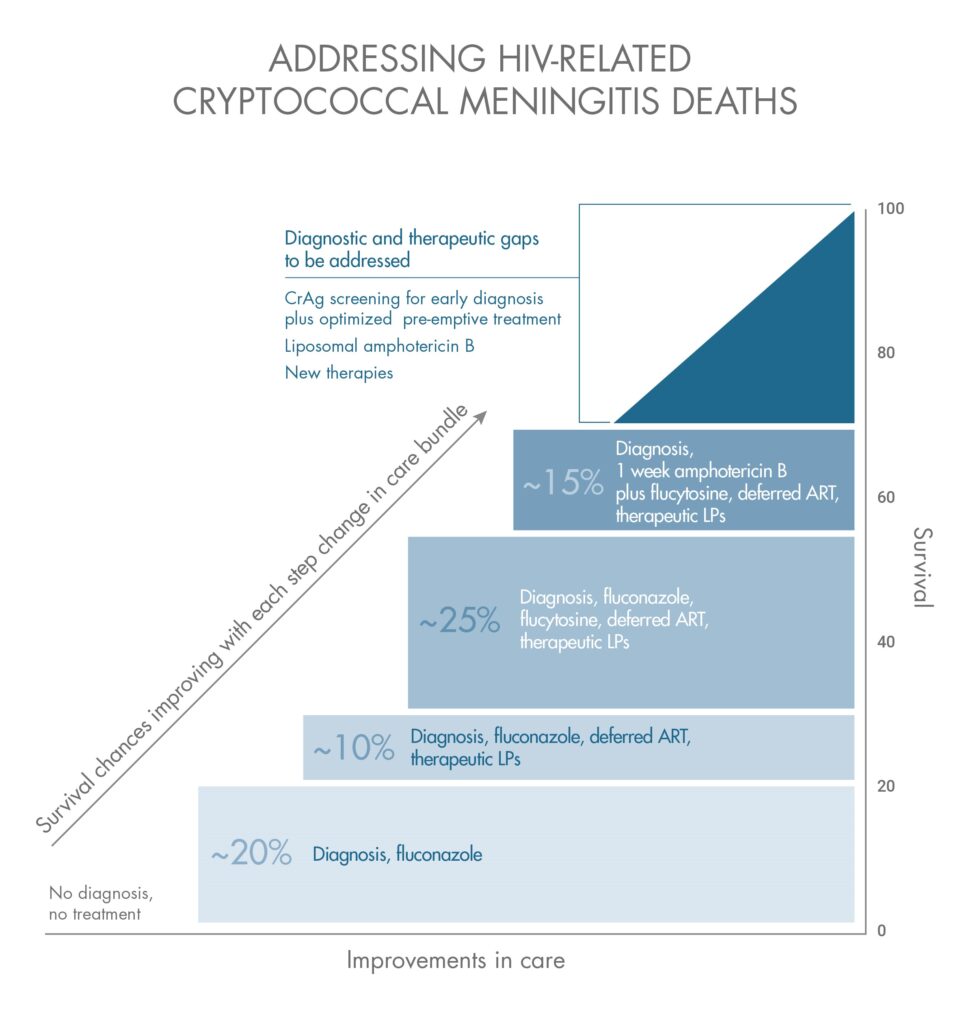
On World AIDS Day, experts from multiple African, European and American institutions have put out an alarm call to prioritise a strategy “to end deaths from HIV-related cryptococcal meningitis by 2030.”– in a commentary published in the prestigious journal Lancet Infectious Diseases.
Undiagnosed and untreated fungal meningitis in AIDS caused by Cryptococcus is always fatal, but if diagnosed early and optimally treated, over 80% survive. In Africa, today only about 30% survive. This is immediately correctable with current tests and treatments, but needs action.
Experts have proposed the following steps to help reverse these numbers:
- Enabling all communities to diagnose patients with a simple to use test for cryptococcal antigen (CrAg). This measure would probably cost the global community and countries ~$25 million per year.
- Immediate provision of flucytosine, which improves survival by 25%. This medicine was first used in the 1970’s, has been a WHO Essential Medicine since 2013 and would cost less than $30 million annually.
- Education of healthcare workers looking after HIV patients to test with CrAg, to enable them to do lumbar punctures, to both use amphotericin B and delay anti-retroviral therapy in those with meningitis.
- Ensure all patients with meningitis can receive amphotericin B safely.
These experts hope this call to action will encourage governments and organisations such as the Global Fund for AIDS, TB and Malaria, PEPFAR, and other major funders of HIV/AIDS care, to request and implement these key steps.
Professor David Denning, Chief Executive of the Global Action Fund for Fungal Infections (GAFFI) and of the University of Manchester said,
“If all these four measures could be instituted immediately, deaths from AIDS would fall by an estimated 80,000, less than $1000 per life saved. Given the billions spent each year on HIV/AIDS programs, this is clearly worthwhile and urgent.”
This call to action was issued by CryptoMag, an advocacy group with multiple partners including the US Centres for Disease Control, Atlanta; GAFFI, Geneva; Centre for Global Health, St George’s University of London; Centre for Infectious Disease Epidemiology and Research University of Cape Town; National Institute for Communicable Diseases and University of the Witwatersrand, Johannesburg; International Treatment Preparedness Coalition, Johannesburg; Division of Infectious Diseases and International Medicine, University of Minnesota, Minneapolis; Drugs for Neglected Diseases Initiative, Geneva; Botswana Harvard AIDS Institute Partnership, Gaborone; London School of Hygiene & Tropical Medicine and Southern Africa Medical Unit, Doctors Without Borders Southern Africa, Cape Town.
You can find a link to the full paper here
Link to paper http://www.thelancet.com/journals/laninf/article/PIIS1473-3099(20)30909-9/fulltext